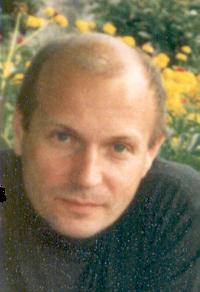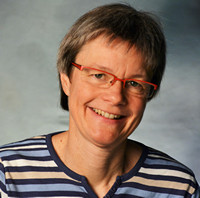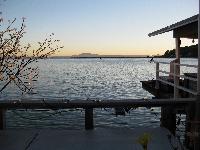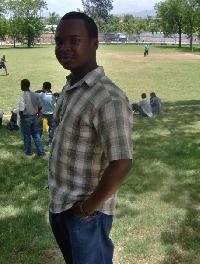Is there any chance to gain medical experience for translation? Thread poster: Roman Lutz
|
|---|
Roman Lutz 
Germany
Local time: 12:52
English to German
+ ...
I am really interested in the entire medical / pharmaceutical field and from the information I gather, medical translation tends to justify higher rates than most other fields.
That said, I have have very little medical background.
Is it possible for a complete novice in this field to gain experience SUFFICIENT to produce medical translations, without ever having worked in that field / having studied it? How did others become medical translators? It seems to me that if... See more I am really interested in the entire medical / pharmaceutical field and from the information I gather, medical translation tends to justify higher rates than most other fields.
That said, I have have very little medical background.
Is it possible for a complete novice in this field to gain experience SUFFICIENT to produce medical translations, without ever having worked in that field / having studied it? How did others become medical translators? It seems to me that if you're a doctor, it seems more lucrative to stay in that profession? It also seems unlikely that someone who began his / her studies in medicine and did not graduate would miraculously end up being a translator, with the two professions per se having nothing to do with each other?
Is it possible to attend enough seminars/courses/training to end up having enough expertise to produce quality medical translations or do you have to work in that field and somehow become a translator (most likely as a side job)? If the former is the case, where do I find those seminars etc. and who offers them? Are they affordable?
Really interested to read your opinions, especially from people who work in the medical field themselves. ▲ Collapse
| | | | | Sorry to be harsh | Oct 11, 2012 |
but your question sounds very much alike a question "can I play piano without playing it?"
I am of the opinion that it is impossible without PROPER training.
As far as doctors who cannot stay in profession are concerned, I know two persons, who were good doctors earlier but cannot work as doctors now due to some reasons beyond their control. However the experience and education make them good candidates for translating or at least proofreading.
[Edited at 2012-10... See more but your question sounds very much alike a question "can I play piano without playing it?"
I am of the opinion that it is impossible without PROPER training.
As far as doctors who cannot stay in profession are concerned, I know two persons, who were good doctors earlier but cannot work as doctors now due to some reasons beyond their control. However the experience and education make them good candidates for translating or at least proofreading.
[Edited at 2012-10-11 06:28 GMT] ▲ Collapse
| | | | | Clinical Research | Oct 11, 2012 |
I found a very interesting course called "Clinical Research". It is for people without medical background. It is a distance learning course plus 8 seminar days.
I will start with it in January the latest, so I can keep you posted. Of course, it depends on what area of medical translations you are interested in.
It is all in German though, but since German is your target language I am sure it would be useful.
... See more I found a very interesting course called "Clinical Research". It is for people without medical background. It is a distance learning course plus 8 seminar days.
I will start with it in January the latest, so I can keep you posted. Of course, it depends on what area of medical translations you are interested in.
It is all in German though, but since German is your target language I am sure it would be useful.
http://www.akad.de/kolleg/weiterbildungsangebot/fernstudium/lehrgang/clinical-research/ ▲ Collapse
| | | | Emma Goldsmith 
Spain
Local time: 12:52
Member (2004)
Spanish to English
| Past threads | Oct 11, 2012 |
| | |
|
|
|
Woodstock (X) 
Germany
Local time: 12:52
German to English
+ ...
| You might be surprised | Oct 11, 2012 |
that the medical field is not made up of doctors alone. It is a multifaceted industry with lots of related fields, of which clinical research - as mentioned by Maiwald above - is only a fairly small part. In addition, that linked course costs nearly 4,000 euros, which is a pretty expensive investment. As an example of a "Quereinsteiger" (meaning I don't have a degree in translation, I learned by doing, plus my father was a translator/interpreter), I worked as international coordinator and in-hou... See more that the medical field is not made up of doctors alone. It is a multifaceted industry with lots of related fields, of which clinical research - as mentioned by Maiwald above - is only a fairly small part. In addition, that linked course costs nearly 4,000 euros, which is a pretty expensive investment. As an example of a "Quereinsteiger" (meaning I don't have a degree in translation, I learned by doing, plus my father was a translator/interpreter), I worked as international coordinator and in-house translator for a consulting firm specialized in the pharmaceutical industry for twelve years, which also involved marketing and personnel management, and now do a fair amount of translation in medical and pharmaceutical marketing, but nothing that involves diagnoses or very technical texts. That's one way of gaining experience. However, my opinion is that the hands-on experience is pretty important. I would be a bit doubtful that you can acquire such knowledge without actually putting it into practice in a meaningful way, but maybe other contributors here will have had other experiences.
As to the type of people with medical/scientific backgrounds ending up as translators: A) Not every person who gets a medical degree can become a doctor for various reasons or may not ultimately be suited to working with patients. Some may end up in positions in pharma or related industries, which brings me to --> B) The consulting firm I mentioned above also did recruitment for a wide range of positions in the pharmaceutical field, and there were a lot candidates with university degrees in science who were recruited as pharma sales representatives because they couldn't get jobs in their academic fields. That is another example of the type of person who might end up translating at some point. I would say that most who have degrees in science have an excellent command of English, at the very least - certainly those I have known do.
So your idea of the medical/pharmaceutical industries seems rather limited in scope, and if you are interested in it mainly because of the higher rates, you have to consider the amount of time (and money in countries where higher education is NOT free) that medical translators invested in their training BEFORE they became translators. Are you willing to do the same? ▲ Collapse
| | | |
I posted this in the otehr thread on the same topic. I find that highly interesting
Anne Diamantidis wrote:
Some colleagues from Russia recently conducted a serious survey on medical translation by translators with a medical background vs. translators with a translation background.
Their article with the survey methodology and results is available here
| | | | Kay Denney 
France
Local time: 12:52
French to English
Anne Diamantidis wrote:
I posted this in the otehr thread on the same topic. I find that highly interesting
Anne Diamantidis wrote:
Some colleagues from Russia recently conducted a serious survey on medical translation by translators with a medical background vs. translators with a translation background.
Their article with the survey methodology and results is available here
"According to the preliminary statistics, translators with a linguistic background are more prone to terminological and logical mistakes, while translators with a medical background are more prone to grammatical and stylistic mistakes. "
I wouldn't have thought it necessary to conduct a study actually, I could have told them that for free!
Joking apart, Roman, I would not entertain the idea of venturing into medical translation unless I could be sure of having a person with some kind of medical background check my work. Did you not hear of a recent scandal where a mistake in the translation of instructions for some hi-tech diagnosis machinery caused the death of several patients?
| | | | | It's all about passion | Nov 6, 2012 |
Roman, if you are truly passionate about it, then yes, it is possible. It will take a lot of effort and study however. After you master basic scientific knowledge, such as basic biology, I recommend you read medical textbooks and familiarize yourself with different types of procedures (surgical or not) and equipments. I suggest you read about internal medicine. That will provide you with a general knowledge of the medical field. You should also find yourself some glossaries specialized in the fi... See more Roman, if you are truly passionate about it, then yes, it is possible. It will take a lot of effort and study however. After you master basic scientific knowledge, such as basic biology, I recommend you read medical textbooks and familiarize yourself with different types of procedures (surgical or not) and equipments. I suggest you read about internal medicine. That will provide you with a general knowledge of the medical field. You should also find yourself some glossaries specialized in the field. Proz.com has some for members. Moreover, you can also consider volunteering at an hospital, healthcare facility or Red Cross. It doesn't have to be in patient care. This will give you some hands on experience and you will hear all the time the medical terms you will find in your translation projects. That would also be a good occasion to socialize with experts in the medical industry.
Hope that helps,
Ricardy ▲ Collapse
| | |
|
|
|
| The problem with medical translation | Jan 10, 2013 |
is that it requires knowledge of a LOT of different fields, to allow you to understand what your source text is talking about. These might include (but obviously are not limited to) anatomy, physiology, biochemistry, physics... then all the specialist fields - nephrology, cardiology and so on. Plus the style used differs greatly between my two languages (Italian and English), and terms can be difficult to render well if you are not familiar with the terminology and the subject.
I am... See more is that it requires knowledge of a LOT of different fields, to allow you to understand what your source text is talking about. These might include (but obviously are not limited to) anatomy, physiology, biochemistry, physics... then all the specialist fields - nephrology, cardiology and so on. Plus the style used differs greatly between my two languages (Italian and English), and terms can be difficult to render well if you are not familiar with the terminology and the subject.
I am currently in my final year of a nursing degree; my mother tongue is English but I'm studying in Bologna, Italy, where I live. I am absolutely loving it, and have learned so much. I'm currently on placement in a surgical oncology ward, so I come into contact with orthopaedic surgeons, anesthetists, radiologists, physiotherapists, oncologists and internists on a daily basis. This contact with other health professionals, in the form of physical examinations, patient interviews, drug prescriptions, patient records and so on is incredibly helpful from the point of view of building a knowledge and terminology base, and something you can only have by working hands-on in the medical field.
That's not to say that a "layman" cannot translate medical texts; if someone was able to receive a steady stream of medical work from an agency or a client, for example, they could build up experience that way.
One option ( as I have done in the past) is find a medical translator working in your languages who you trust, and ask them to proof read and critique your translations. This type of arrangement is unlikely to be free, however, so may be an expensive way to build experience.
I wish you the best of luck.
Edited to add: I volunteered with the local ambulance service for a while; if you are keen you can do courses on things such as pre-hospital trauma care, basic life support and others. It will bring you into direct contact with the emergency and other departments, and may help you come into contact with professionals working in these areas.
Another possibility is medical transcription programmes. Never done one, but I know that various people have used them to gain experience with medical terminology.
[Edited at 2013-01-10 13:49 GMT] ▲ Collapse
| | | | | Medical translation - not so scary as it seems | Feb 28, 2013 |
Just in case you're interested - a webinar is taking place next week on that topic with the title "Medical translation: not so scary as it seems." You'll find all info here
| | | | To report site rules violations or get help, contact a site moderator: You can also contact site staff by submitting a support request » Is there any chance to gain medical experience for translation? | Pastey |
|---|
Your smart companion app
Pastey is an innovative desktop application that bridges the gap between human expertise and artificial intelligence. With intuitive keyboard shortcuts, Pastey transforms your source text into AI-powered draft translations.
Find out more » |
| | Trados Studio 2022 Freelance |
|---|
The leading translation software used by over 270,000 translators.
Designed with your feedback in mind, Trados Studio 2022 delivers an unrivalled, powerful desktop
and cloud solution, empowering you to work in the most efficient and cost-effective way.
More info » |
|
| | | | X Sign in to your ProZ.com account... | | | | | |












